Mental Health Commission of Canada (MHCC):
Mental Health and Substance Use Research Projects
The purpose of this project is to bridge community-based research capacities within 14 research teams by equipping them with research theory and evaluation tools helpful in conducting research with excellence. The training and coaching activities will be implemented by fostering a reflective and supportive environment for all involved in our journey of ongoing learnings about research meaningfulness, improvements, and impact.
Project Team
Trainers and Coaches

Joanna Ochocka
Co-Director
Centre for Community Based Research
Rich Janzen
Co-Director
Centre for Community Based Research

Dr. Charlotte Loppie, PhD
University of Victoria

Community-Based Research Project Teams
A Joint Production: Using Participatory Video for Stigma Reduction and Public Education
Recovery Advocacy Documentary Action Research (RADAR Mental Health)

Rob Whitley is the founding director of Recovery Advocacy Documentary Action Research, a collective of individuals producing short educational videos related to mental health and mental illness. He is a passionate videographer and is always willing to help community organizations wishing to produce informative videos about mental health issues. He is grateful to the Mental Health Commissions of Canada for funding the study.
Rob Whitley
Rob Whitley is the founding director of Recovery Advocacy Documentary Action Research, a collective of individuals producing short educational videos related to mental health and mental illness. He is a passionate videographer and is always willing to help community organizations wishing to produce informative videos about mental health issues. He is grateful to the Mental Health Commissions of Canada for funding the study.

Richard Diraddo is a Montreal based Documentary Filmmaker. He has been with the RADAR film production team since 2015 and has made several short films with them. He Is currently working on his first feature length documentary film entitled, ‘Sonja’s Story’ and works at the Douglas Mental Health Institute as a Research Assistant with Dr. Rob Whitley.
Richard Diraddo
Supporting Mothers Who Consume Cannabis in Ways That Work
McMaster University
Theresa Kozak

I come to this work with 15+ years of personal and professional experiences related to cannabis, intersectional feminist community development and community-based research, and social work & community health education and practice.
I am a settler on these lands and have Ukrainian, English, Irish, and German heritage. I grew up outside of Brantford, currently live in Waterford, and work at McMaster University in Hamilton, Ontario. I live and work on the traditional territories of the Mississauga and Haudenosaunee nations and lands that are protected by the Dish With One Spoon wampum. I appreciate how my two dogs bring out my playful and active side. I also enjoy baking –particularly now as I continue to experiment with garden bounty in muffins, cakes, and other treats.
Allyson Ion
Bio

I am a member of the sandwich generation. I recently moved my 85year old mother into my home to live with my 19year old son and I.. I live in Hamilton, near McMaster University and am grateful for the protected walking trails near my home, the vegetable garden that I grow in the backyard, and the safe community of friends that live around me. I have many hobbies. I identify as a stained glass artist and have created hundreds of pieces including panels, lamps, and stepping stones -- cutting glass is an excellent way to practice mindfulness while creating something beautiful.
Bio
Examining the Relationship Between Cannabis and Mental Wellness among First Nations
Research Unit of the First Nations Information Governance Centre (FNIGC)

Maria Santos
Mohawks of the Bay of Quinte, Tyendinaga: Community-Based Research Projects in Cannabis & Mental Health
Mohawks of the Bay of Quinte (Community Wellbeing Centre) National Native Alcohol and Drug Abuse Program
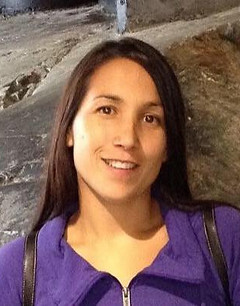
Sara Abdallah
Britta Gaddes
Susan Barberstock
Bio
Amy Nahwegahbow
Claudette Cardinal
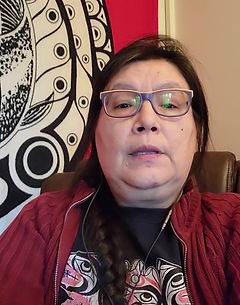
Britta Gaddes
Susan Barberstock

Britta Gaddes
Susan Barberstock
I am an Addictions and Mental Health worker in Tyendinaga Mohawk Territory. I work for the Mohawks of the Bay of Quinte as the NNADAP Worker. Myself and my children are disconnected from our Cree ancestral ties that originate from Montana on Turtle Island. We are disconnected due to the effects of past ongoing colonisation government practices. We have kinship ties in Tyendinaga and sit under the protection of the Wolf Clan.I am grateful to have been given an avenue to fulfill my roles and responsibilities to Family, Clan, Community and Nation in Tyendinaga Mohawk Territory. I am passionate about marginalized and vulnerable peoples and communities from a social justice perspective. I am committed to authentic and meaningful work and striving for connection to all the relatives and teachers who cross my path. I am guided by ethical principles and the process of personal decolonisation.
Bio
Addressing the Stigma of Parental Cannabis Use in First Nations' Communities Through Community Engagement and Policy Review
Thunderbird Partnership Foundation & Lakehead University
Bio
Carol Hopkins
Chris Musquash
Understanding Immigrant, Refugee, Ethnocultural, and Racialized (IRER) Youth’s Experiences of the Relationship Between Cannabis Use and Mental Health Using Experience-Based Co-Design method (EBCD)
Centre for Resilience and Social Development and Social Research and Demonstration Corporation
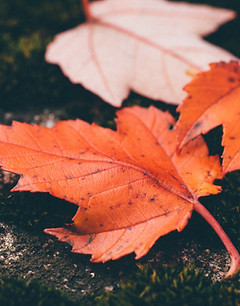
Bio

Carol Hopkins has spent more than 20 years in the field of First Nations addictions and mental health. She holds both a Masters of Social Work Degree from the University of Toronto and a degree in sacred Indigenous Knowledge, equivalent to a PhD in western based education systems. Carol also holds a sessional faculty position in the school of social work at Kings University College at Western University.
Bio

Bio
Aber Abdulle
Cannabis and Mental Health in Marginalized Populations
University of Ottawa, OHRI
Unpacking Cannabis Use and Mental Health in Metis in Manitoba
Manitoba Métis Federation
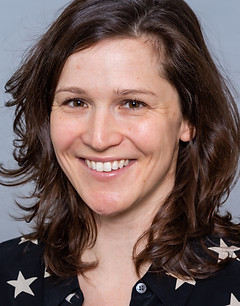
Christina Hackett, I work at the Social Research and Demonstration Corporation (SRDC), and we're supporting the co-design process and the project overall Growing up I lived in 7 different cities and towns across Canada and the United States. I live and work within the unceded territory of the Algonquin Anishinabe nation - I'm grateful for the four seasons we get to experience here and am looking forward to winter! I am passionate about painting (gouache) and downhill skiing!
Bio
Christina Hackett

Bio
Sara Abdallah

My name is Sadia Jama. I am one of the researchers on the Ottawa Cannabis & Mental Health Project in Marginalized Populations. The project is led by the Bridge Engagement Centre, a community-based research Centre in Ottawa. I am also an Epidemiology PhD Candidate at The Bridge, conducting substance use community-based research at the Centre. I am Somali Canadian and came to Canada at the age of 3 from Somalia. Haven’t had the opportunity to go back yet but hope to do so in the next few years. I am grateful for all of the opportunities I have had as a settler on this territory. I am a trekkie – huge Star Trek fan! Comicon and conventions type of fan 😊
Bio
Sadia Jama
Understanding the Link between Cannabis Use and Mental Health: A Focus on the Experiences of Older Adults
National Initiative for the Care of the Elderly (NICE)
Picturing the experiences and perspectives of cannabis use by 2SLGBTQ living with a mental illness in Québec
l’Université de Montréal
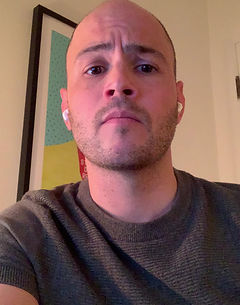


I come from a family of 6. My 3 siblings all still live in Ontario. I am grateful to be a guest on the Metis Homeland and Treaty 1 territory. I love reading and binge-watching on Netflix.
Bio
Julianne Sanguins

Bio
Olena Kloss
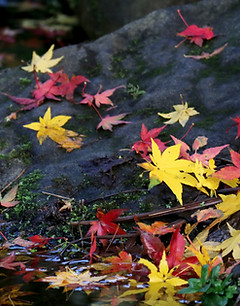
Bio
Raza Mirza
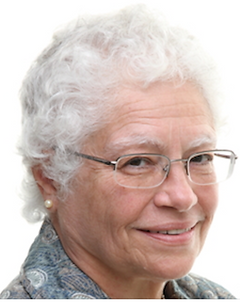
Mary Hynes
One thing about my family story is that I have a multiply disabled son. One thing I am grateful for about living on the current territory is that. I and my husband were allowed to immigrate during the Vietnam War. One thing that I am passionate about is building with Lego.
Bio
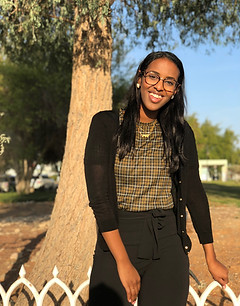
I work at CRSD and supporting the project titled " Understanding Immigrant, Refugee, Ethnocultural, and Racialized (IRER) Youth’s Experiences of the Relationship Between Cannabis Use and Mental Health Using Experience-Based Co-Design method (EBCD) ". I'm the middle child of 7. I currently live in Ottawa, ON which is the unceded territory of the Algonquin Anishinabe nation. I'm incredibly grateful to be surrounded by beautiful nature and outdoor walking trails that have been exceptionally helpful during the pandemic. I'm also grateful that I live and work in a city that fosters community empowerment in different diverse settings. I'm particularly passionate about sports (NBA, NFL, Premier league)!
Bio
Olivier Ferlatte
Tara Chanady
Cannabis si koom la Michinn (Cannabis as Medicine)
Métis Nation British Columbia (MNBC)
Cannabis and Indigenous Mental Health: Lifting the Pipes
Mahegun Tails, Inc.
Impacts of Cannabis Use on Drug Treatment Court Programs in Ontario
Canadian Mental Health Association and John Howard Society of Ontario
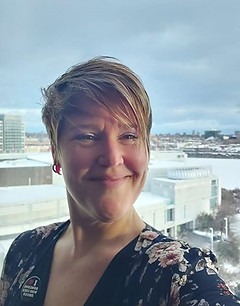
Sheila Lewis
It’s our identity as Indigenous that makes my family story. So I say to you I am non-status First Nations from Plains Cree and Skeetchestn (Secwepmc Nation). One thing I am grateful for about living on the current territory is that the land and the people of the land, the Syilx Nation, brought my mother and myself into their communities and ways of being. Everything I do is connected to this land and to the people. I am passionate about my work and outside of that I am passionate about my connection to the water – I am my happiest when I am swimming and I swim five days a week – lake is the summer and pool in the winter.
Bio
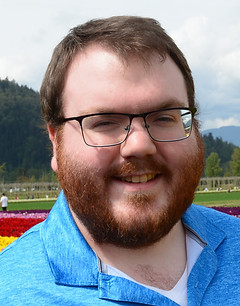
Stephen Thomson
I am the Provincial Harm Reduction Coordinator for Métis Nation British Columbia and proud Métis Citizen. I discovered my Métis heritage around age 18 when my family found a photograph of my great, great grandfather standing with other Métis during the 1885 Rebellion on display at the Glenbow museum in Calgary. I am incredibly grateful to live, work and play on the unceded ancestral territory of the Musqueam, Squamish and Tsleil-Waututh people here in Burnaby; also home to the North Fraser Métis Society. I am incredibly passionate about Métis health and Métis-specific data, something I find under-represented in health literature. As a hobby, I play a variety of board games and had a 5-year long game of Dungeons and Dragons end shortly before the pandemic.
Bio

Marsha Wolf Collar
Bio

I am one of the lead researchers on the team. My family history: I am Anishinaabe from Sagkeeng First Nation MB with a family connection to the Isle of Skye in Scotland. One thing I am grateful about living in the current territory is that it is my ancestral Anishinaabe--my family & ancestors have been living in this territory for thousands of years and we still have a strong connection to the land. One passion: my grandson & family
Suzanne McLeod
Bio

I’m a Research Analyst at the John Howard Society of Ontario. My interests in cannabis and its relationship with mental health began when I was completing my master's degree at the University of Toronto and conducted an ethnographic study on cannabis dispensaries and the impacts that cannabis legislation would have on their operation throughout Canada. I grew up in a blended family with four brothers. One thing that I am grateful for about living on my current territory is that I am afforded the opportunity to travel short distances and explore various locations in nature. I believe that with the current pandemic this year, I have had a greater appreciation for having “staycations” and discovering what is in my own backyard.
Meaghan Costa
Bio
Jean Hopkins

My name is Jean Hopkins, I am interested in issues related to harm-reduction, human rights, and decriminalization of substance use. My family recently expanded with the birth of my daughter last August and I am so grateful for her health and wild energy. When I’m able, I spend my time gardening and love having my hands in the dirt. I value open communication, compassionate inquiry and not taking yourself too seriously.
Bio
Krista Benes

Julia Armstrong

I am the program manager for the mental health and substance use team at the MHCC. And, I am overseeing the administration of the community-based research projects, cannabis and mental health. My family moved to Canada from Jamaica in the 1980s. We love it here, although, we definitely would love to live in the Caribbean during the winter months. I am originally from Toronto and now I live in Ottawa. I love both cities because of the diversity and richness in cultures and people. I love traveling, visiting new places and trying out new food and dishes which makes me very passionate about food and cooking.
Bio
Sheldon Mellis

My name is Yelena Kapayeva. I’m a Program Coordinator at the Mental Health Commission of Canada working on the Mental Health and Substance Use Program. My husband and I are first-generation immigrants who came from Belarus and Russia currently living in Ottawa, Ontario. We have lived in North America for 21 years. We have a 5-year old son and two big fluffy cats who keep us very busy. I’m grateful for all the beautiful foliage I get to see every fall in Canada. I’m passionate about semi-precious gemstones and I’ve recently started making my own jewelry.
Bio
Yelena Kapayeva

I work for the Mental Health Commission of Canada as a Knowledge Broker (I’ll be working to highlight and share all these awesome projects with the world!). I live with my partner, Josh, and our sweet 2 year old daughter, Zoe (and our furry family members – Thomas, Miriam and Link!). I live on the traditional unceded territory of the Algonquin Anishnaabeg People. My family and I love all the green spaces here and spend most of our weekends hiking local trails and exploring nature. I’m an introvert -I love quiet walks through trails, feeding chickadees and I enjoy crafting!
Bio
Cara Kane

Bio
Pamela Obegu
Mental Health Commission of Canada (MHCC)
The Impacts of Cannabis Use on the Mental Health of In Risk Communities
Habitus and Alberta Addicts Who Educate and Advocate Responsibly (AAWEAR)

MAKING SENSE OF WHAT WE KNOW
“I’m fascinated by how good ideas get traction with people, organizations and communities. When thinking about a question or an issue, I think it’s prudent to ask: how does what we learn benefit the people or the community it’s aiming to assist? Without impact at that level, what is the point? That makes us tinkerers, researchers, evaluators and activists who want to take good ideas and great practices and apply them, test them and learn from them, for everyone’s benefit”.
Lisa Elford
Bio
Deniz Erkmen

Kathleen Larose is a problem solver with 15 years of cognate experience in non-profit sector helping vulnerable population in Canada. As a woman with lived experience of homelessness and family addiction, her drive and passion to challenge the status quo and help shape local homelessness in her community and different regions in Canada emanated. Her journey helping marginalized population of men and women who are addicted to alcohol or other drugs and living vulnerable started on the streets of Calgary and later to Vancouver, Kamloops and Montreal. For the past decade, she has also led several outreach programs working with women, developing women’s groups and supporting those who are identified as HIV+.
Kathleen Larose
Bio
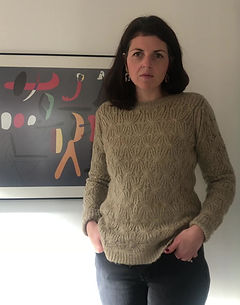
Gayatri Moorthi

Deniz is a researcher and data analyst concerned with the greater good. Her passion lies in organizing large sets of data and mobilizing knowledge in clear, easy to understand, and concise ways. She is motivated by investigation, equity, and life-long learning. Deniz has international experience in the non-profit, public, academic, and private sectors, offering her a wide lens on social issues. Prior to her work with Habitus, Deniz worked as a Research Officer and Project Coordinator in the immigrant sector, analyzing the impact of immigration policy in Alberta and across Western Canada.
Bio

QUESTION YOUR WAY TO SOLUTIONS
“With all the talk on systems impact, methods, measurement and social change, we are often quick to dismiss our most basic assumptions that surround these concepts. I always like to begin with the basics and ask others and myself some simple questions. The answers can be surprising, often reflecting the confusion, conflation and confluence of the social landscape. I see my role first and foremost as one who can get to the bottom of those fundamental questions. Returning to these questions time and time again reminds us that complexity often lies in answering the simplest questions easily.”
LinkedIn: https://www.linkedin.com/in/gayatri-moorthi-39838679/
